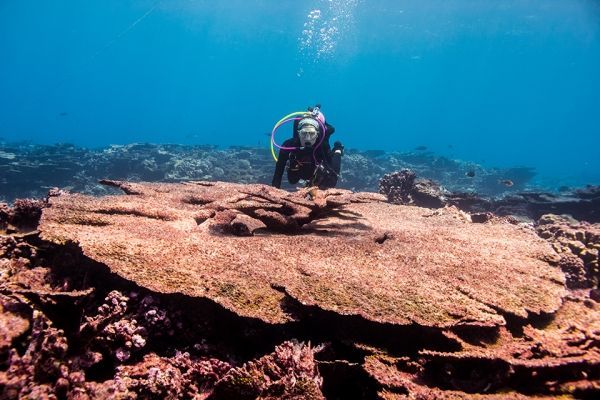Growing up in Idaho, far from any coastline, Danielle Claar says her curiosity about the underwater world was sparked as a teenager on a scuba diving trip with her parents. “I was fascinated right away,” she says. “The ocean is a complex and dynamic world.”
What lies on the floor of the ocean interested her the most. “Coral is not just a rock; it’s an animal, vegetable and mineral that supports so many lifeforms.”
After working as a coastal marine biologist, Claar came to UVic to work in the Baum lab, studying the human impact on coral reefs’ symbiotic relationships with algae and other organisms. “One of the biggest threats to coral reefs is the warming of the ocean, but there is much debate on how much and what we can do to protect them at a local scale,” she says.
Claar set up a field research site on Kiritimati Island, a remote and sparsely populated coral atoll south of Hawaii that boasts a range of reefs—including some of the most pristine coral reefs in the world—as well as areas that are highly degraded by fishing, runoff and weather events such as El Niño.
Continue reading at University of Victoria.
Image via University of Victoria.


